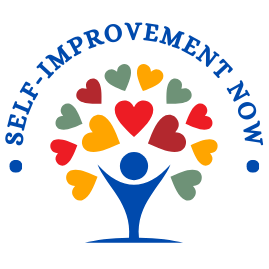Stress Management: Effective Techniques for a Healthier You
Are you feeling overwhelmed by the constant demands of life? Does stress seem to follow you everywhere you go? If so, you’re not alone. Stress has become a common companion in our fast-paced, modern world. But here’s the good news: stress management is within your reach. In this blog post, we will explore effective strategies and techniques to help you regain control and find peace amidst the chaos. Whether it’s through mindfulness practices, exercise, or simple lifestyle adjustments, you’ll discover practical tools to combat stress and improve your overall well-being. So, let’s dive in and start our journey towards a calmer and more balanced life.
Understanding Stress
Stress is a common experience that affects everyone at some point in their lives. It is a natural physiological response to any demand or pressure placed on the body or mind. Understanding stress is crucial in order to effectively manage it. In this section, we will explore what stress is, the different types of stress, and the various causes that can trigger stress.
What is Stress?
Stress can be defined as the body’s reaction to a perceived threat or challenge. When confronted with a stressor, whether it’s a tight deadline at work or a difficult personal situation, our bodies release stress hormones, such as cortisol and adrenaline, which prepare us to either fight or flee. This response is commonly known as the “fight-or-flight” response.
Types of Stress
There are different types of stress that individuals may experience. It’s important to recognize these variations in order to better understand our own stress levels. Here are a few common types of stress:
- Acute Stress: This type of stress is short-term and is often caused by a specific event or situation. Examples include giving a presentation or taking an exam.
- Chronic Stress: Chronic stress is long-term and can result from ongoing challenges, such as work-related issues, financial problems, or relationship difficulties.
- Episodic Acute Stress: Individuals who frequently experience acute stress may develop a pattern known as episodic acute stress. These individuals are often characterized as “high-strung” or “worrywarts.”
Causes of Stress
Stress can arise from a wide range of factors, and what may be stressful for one person may not affect another in the same way. Here are some common causes of stress:
- Work-related stress: Heavy workloads, tight deadlines, conflicts with colleagues, or job insecurity can all contribute to stress in the workplace.
- Personal relationships: Difficulties in personal relationships, whether it’s with a partner, family member, or friend, can be a significant source of stress.
- Financial pressures: Financial instability, debt, or the fear of not being able to meet financial obligations can lead to chronic stress.
- Life changes: Major life events, such as moving, divorce, starting a new job, or the loss of a loved one, can be highly stressful.
- Health issues: Dealing with illness, chronic pain, or caring for someone who is ill can contribute to stress levels.
Understanding the various causes of stress can help us identify the triggers and take proactive steps towards managing and reducing stress in our lives.
 (Photo by Andre Furtado)
(Photo by Andre Furtado)
By gaining a deeper understanding of stress, its different types, and the factors that contribute to its occurrence, we can begin to develop effective strategies for managing and coping with stress. In the next section, we will explore some practical techniques for stress management.
The Impact of Stress on Your Health
Stress can take a toll on both your mental and physical well-being. It affects every aspect of your life, from your emotions to your behaviors. Understanding the impact of stress on your health is crucial in order to effectively manage it. Let’s delve into the physical, emotional, and behavioral effects of stress.
Physical Effects of Stress
Stress can manifest itself in various physical symptoms. When under stress, your body goes into a fight-or-flight response, releasing stress hormones like cortisol and adrenaline. These hormones can lead to a range of physical effects, such as:
- Headaches: Stress can trigger tension headaches or even migraines, making it difficult to focus and carry out daily activities.
- Muscle tension: Chronic stress can cause muscle tension, leading to body aches, stiffness, and discomfort.
- Weakened immune system: Prolonged stress weakens your immune system, making you more susceptible to illnesses and infections.
- Digestive issues: Stress can disrupt your digestive system, causing symptoms like stomachaches, indigestion, nausea, or even exacerbating existing conditions like irritable bowel syndrome (IBS).
- Insomnia: Stress can interfere with your sleep patterns, making it hard to fall asleep or stay asleep throughout the night.
 (Photo by Kindel Media)
(Photo by Kindel Media)
Emotional Effects of Stress
Stress can have a profound impact on your emotional well-being, often leading to feelings of overwhelm, anxiety, and even depression. Here are some common emotional effects of stress:
- Anxiety: Stress can trigger constant worrying, restlessness, and feelings of unease, making it challenging to relax and enjoy life.
- Mood swings: Stress can cause frequent mood swings, making you irritable, agitated, or easily frustrated.
- Depression: Prolonged stress can contribute to the development or worsening of depression symptoms, including persistent sadness, loss of interest, and low energy levels.
- Difficulty concentrating: Stress can impair your concentration and memory, making it harder to complete tasks or remember important information.
- Decreased self-esteem: Chronic stress can erode your self-confidence and self-worth, leading to negative self-perception and feelings of inadequacy.
Behavioral Effects of Stress
Stress often influences our behaviors, sometimes in negative ways. Here are some common behavioral effects of stress:
- Emotional eating: Stress can trigger unhealthy eating habits, leading to overeating, comfort eating, or relying on sugary and fatty foods for temporary relief.
- Increased substance use: Some individuals turn to alcohol, drugs, or other substances as a coping mechanism for stress, which can lead to addiction and further health complications.
- Social withdrawal: Stress can make you want to isolate yourself from others, avoiding social interactions and support systems.
- Procrastination: When stressed, you may find it difficult to focus and complete tasks in a timely manner, resorting to procrastination instead.
- Impaired decision-making: Stress can cloud your judgment, leading to impulsive or irrational decision-making.
 (Photo by Honye Sanges)
(Photo by Honye Sanges)
Understanding the impact of stress on your health is the first step towards effective stress management. By recognizing the physical, emotional, and behavioral effects of stress, you can take proactive steps to reduce its impact and prioritize your well-being. Stay tuned for our upcoming sections on effective stress management techniques and coping strategies.
Effective Stress Management Techniques
Stress is an inevitable part of life, but how we manage it can make all the difference. By implementing effective stress management techniques, we can mitigate its negative impact and enhance our overall well-being. In this section, we will explore various strategies to help you effectively manage stress.
Exercise and Physical Activity
Engaging in regular exercise and physical activity is a powerful way to combat stress. When we exercise, our bodies release endorphins, which are natural mood boosters. These endorphins can help reduce feelings of anxiety and improve our overall sense of well-being.
Make time for activities you enjoy, such as walking, jogging, swimming, or dancing. Aim for at least 30 minutes of moderate-intensity exercise on most days of the week. Not only will this help alleviate stress, but it will also promote physical fitness and enhance your overall health.
 (Photo by Ketut Subiyanto)
(Photo by Ketut Subiyanto)
Relaxation Techniques
Incorporating relaxation techniques into your daily routine can help you unwind and manage stress more effectively. Consider trying deep breathing exercises, progressive muscle relaxation, or guided imagery. These techniques can help calm your mind, reduce muscle tension, and promote a sense of relaxation.
Take a few moments each day to practice these relaxation techniques. Find a quiet and comfortable space where you can focus on your breath and let go of tension. By regularly engaging in these practices, you can cultivate a sense of inner peace and better manage stress when it arises.
Time Management
Many of us feel overwhelmed due to a lack of effective time management. By improving our time management skills, we can reduce stress and increase productivity. Start by identifying your priorities and setting realistic goals. Break larger tasks into smaller, more manageable ones, and create a schedule or to-do list to stay organized.
Utilize tools and techniques such as time blocking, setting deadlines, and avoiding multitasking. By effectively managing your time, you can create a sense of control over your daily activities and reduce the stress that comes with feeling overwhelmed.
Healthy Lifestyle Habits
Maintaining a healthy lifestyle is crucial for managing stress. Ensure you are getting enough sleep, eating a well-balanced diet, and staying hydrated. Lack of sleep and poor nutrition can significantly contribute to increased stress levels.
Focus on incorporating nutritious foods into your diet, such as fruits, vegetables, whole grains, and lean proteins. Limit your consumption of processed foods, caffeine, and alcohol, as they can exacerbate stress symptoms.
Additionally, prioritize getting enough restful sleep each night. Establish a bedtime routine, create a comfortable sleep environment, and avoid stimulating activities before bed. A well-rested body and a nourished mind are better equipped to handle stress.
Social Support and Relationships
Maintaining strong relationships and seeking social support is essential for effective stress management. Surround yourself with positive and supportive individuals who uplift you and offer a listening ear when needed. Share your thoughts and feelings with trusted friends or family members who understand and validate your experiences.
Engaging in social activities and hobbies can also help reduce stress. Plan outings, join clubs or groups with similar interests, and take the time to connect with others on a meaningful level. By fostering healthy relationships and social connections, you can find comfort, support, and valuable outlets for stress relief.
Implementing effective stress management techniques can lead to a more balanced and fulfilling life. By incorporating exercise, relaxation techniques, time management strategies, healthy lifestyle habits, and nurturing social connections, you can proactively manage stress and enhance your overall well-being. Start implementing these techniques today and experience the positive impact on your stress levels and quality of life.
Tips for Managing Stress in Daily Life
In today’s fast-paced world, stress has become an inevitable part of our lives. From work deadlines to personal responsibilities, it can be challenging to navigate through the pressures and demands that come our way. However, there are effective strategies and practices that can help us manage stress and maintain a sense of balance. In this section, we will explore some practical tips for managing stress in our daily lives.
Prioritize and Delegate Tasks
 (Photo by Monstera Production)
(Photo by Monstera Production)
One of the key contributors to stress is feeling overwhelmed by an endless to-do list. To alleviate this, it’s important to prioritize tasks and focus on what truly matters. Start by identifying the most important and urgent tasks and tackle them first. Learn to delegate responsibilities whenever possible, whether it’s at work or in your personal life. This not only lightens your load but also empowers others and fosters a sense of collaboration.
Set Realistic Expectations
 (Photo by PNW Production)
(Photo by PNW Production)
Setting unrealistic expectations for ourselves can lead to unnecessary stress and disappointment. It’s essential to be honest about our capabilities and limitations. Instead of striving for perfection, aim for progress and improvement. Break down larger goals into smaller, achievable milestones. By setting realistic expectations, we can reduce stress and enjoy a greater sense of accomplishment.
Practice Self-Care
 (Photo by David Bartus)
(Photo by David Bartus)
Taking care of your physical, mental, and emotional well-being is crucial for managing stress. Engage in activities that bring you joy and relaxation, such as exercise, meditation, or pursuing hobbies. Make sure you get enough sleep, eat nutritious meals, and schedule regular breaks throughout the day. Remember, self-care is not a luxury; it’s a necessity for maintaining resilience and managing stress effectively.
Identify and Challenge Negative Thinking
 (Photo by MART PRODUCTION)
(Photo by MART PRODUCTION)
Negative thinking patterns can amplify stress and hinder our ability to cope. It’s important to become aware of these thoughts and challenge their validity. Whenever you catch yourself engaging in negative self-talk or catastrophic thinking, pause and reframe the situation in a more positive and realistic light. Practice gratitude and focus on the good things in your life. By changing your perspective, you can reduce stress and cultivate a more positive mindset.
Seek Professional Help When Needed
 (Photo by Christina Morillo)
(Photo by Christina Morillo)
Sometimes, stress can become overwhelming and impact our overall well-being. If you find that stress is persistently affecting your daily life and ability to function, it may be beneficial to seek professional help. A therapist or counselor can provide guidance, support, and effective coping strategies tailored to your specific needs. Remember, seeking help is a sign of strength, and it can make a significant difference in managing stress in the long run.
By implementing these tips into your daily routine, you can take proactive steps towards managing stress effectively. Remember, stress is a normal part of life, but it doesn’t have to overpower us. Prioritize self-care, practice positive thinking, and seek support when needed. Your well-being deserves your attention and care.
Incorporating Stress Management into Your Routine
Are you feeling overwhelmed by stress and struggling to find balance in your life? Incorporating stress management into your daily routine can help you regain control and improve your overall well-being. In this section, we will explore effective strategies for developing a stress management plan, building healthy habits, and creating a supportive environment.
Developing a Stress Management Plan
To effectively manage stress, it’s essential to have a solid plan in place. Here are some key steps to help you develop a stress management plan that works for you:
- Identify your stressors: Take some time to reflect on the main sources of stress in your life. Is it work-related, personal relationships, or financial pressures? Understanding your stress triggers will allow you to tackle them head-on.
- Set realistic goals: Determine what you want to achieve through your stress management efforts. Set small, achievable goals that align with your values and priorities. This will give you a sense of direction and motivation.
- Prioritize self-care: Make self-care a non-negotiable part of your routine. Incorporate activities that promote relaxation, such as exercise, meditation, or hobbies. Taking care of your physical and mental health is crucial in managing stress.
- Implement stress reduction techniques: Explore various stress reduction techniques, such as deep breathing exercises, mindfulness, or journaling. Experiment with different approaches and find what works best for you.
Building Healthy Habits
In addition to having a stress management plan, building healthy habits can significantly impact your ability to cope with stress. Here are some habits to consider incorporating into your daily routine:
- Regular exercise: Engaging in physical activity releases endorphins, which are natural mood boosters. Aim for at least 30 minutes of moderate exercise every day, whether it’s walking, jogging, or attending a fitness class.
- Maintaining a balanced diet: Proper nutrition plays a vital role in managing stress. Choose a diet rich in fruits, vegetables, whole grains, lean proteins, and healthy fats. Avoid excessive consumption of caffeine, sugar, and processed foods, as they can worsen stress levels.
- Getting enough sleep: Adequate sleep is essential for stress management. Aim for 7-9 hours of quality sleep each night. Establish a relaxing bedtime routine and create a comfortable sleep environment.
- Practicing time management: Feeling overwhelmed can contribute to stress. Learn to prioritize tasks, delegate when possible, and set realistic deadlines. Break large tasks into smaller, manageable steps to reduce feelings of overwhelm.
Creating a Supportive Environment
The environment you surround yourself with can significantly impact your stress levels. Here are some tips for creating a supportive environment:
- Establish boundaries: Set clear boundaries in your personal and professional life. Learn to say no when necessary and communicate your needs effectively. Respecting your boundaries will prevent stress from accumulating.
- Seek social support: Surround yourself with a network of supportive family, friends, or colleagues. Share your feelings with them and seek their guidance or assistance when needed. Social connections can provide comfort and resilience during stressful times.
- Declutter your space: Physical clutter can contribute to mental clutter. Organize your living and working spaces to create a sense of calm and order. Remove any unnecessary items and create a peaceful environment.
 (Photo by Luriko Yamaguchi)
(Photo by Luriko Yamaguchi)
Incorporating stress management into your routine requires commitment and consistency. By developing a stress management plan, building healthy habits, and creating a supportive environment, you can effectively manage stress and lead a happier, more balanced life. Stay tuned for the next section where we will explore additional strategies to tackle stress head-on.
Conclusion
In conclusion, effective stress management is crucial for maintaining our overall well-being. It not only helps us cope with the challenges of daily life but also improves our physical and mental health. By implementing simple strategies such as exercise, relaxation techniques, and time management, we can reduce stress levels and lead a more balanced and fulfilling life.
Remember, stress is a natural part of life, but it doesn’t have to control us. Taking proactive steps to manage stress can make a significant difference in our overall happiness and productivity. So, let’s prioritize self-care and make stress management a priority in our lives.
If you’re feeling overwhelmed, don’t hesitate to seek support from friends, family, or even professional counselors. They can provide guidance and help you develop personalized strategies to effectively manage stress.
In conclusion, let’s take charge of our stress levels and strive for a healthier, happier life. Remember, managing stress is a lifelong journey, but it’s one that’s worth investing in.




